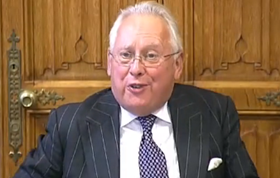An influential group of MPs has called on the government to scrap plans to increase the small claims court limit to £5,000 amid concerns about leaving claimants unrepresented.
In a largely critical report on proposed reforms to the personal injury sector, the justice select committee today says ministers should hold back on further change until the effects of reforms in the past five years have been evaluated.
The committee was ‘troubled’ by an absence of reliable data on insurance fraud – one of the key factors behind reform – and said senior judges had ‘reasonable concerns’ about increasing the limit to such an extent that claimants are no longer represented. Instead, the committee recommended an increase in line with inflation to around £1,500.
The report states that while the Ministry of Justice is making ‘laudable’ efforts to develop an electronic platform with guidance and support for litigants in person, it risks failing to guarantee ‘unimpeded access' to the courts – a principle established in the Supreme Court's judgment last year on employment tribunal fees.
The MoJ is pushing through the Civil Liability Bill in the House of Lords to fix damages for whiplash and, through secondary legislation, increase the small claims limit for RTA claims to £5,000. The changes are expected by April, subject to parliamentary time.

Bob Neill, chair of the cross-party committee, said: ‘We share strong concerns that were raised during our inquiry on this issue, including concerns about the financial and procedural barriers that claimants might face. The Ministry of Justice has made some welcome moves to develop the electronic platform to compensate for claimants’ anticipated lack of legal representation. However, we remain to be convinced that this will be effective or sufficient.
‘This is a vitally important point of principle on which the government should reflect,' he added. 'The small claims limit for personal injury should not be increased unless ministers can explain how it will make sure that access to justice is not affected.’
The report is the culmination of more than a year's study into the personal injury market and follows the start of a renewed inquiry in October. That call for evidence received 34 submissions and lawyers from all sides, as well as justice minister Lord Keen of Elie QC, trade unions, insurers and judges were among those to give evidence.
The committee concludes that the government's estimate of savings that will be passed from insurers to consumers 'may be over-optimistic', given the lack of robust evidence and the unenforceable nature of promises to reduce premiums.
MPs said they received 'compelling evidence' of the obstacles that would be faced by self-represented claimants navigating the current claims process. The government's 'wait and see' approach to judges' concerns about was not considered adequate.
The report adds: 'We remain to be convinced that the electronic platform will be capable of overcoming the underlying inequality of arms between professionally represented insurers and self-represented claimants, particularly with regard to disputes on liability and quantum. Similarly, we conclude that the government has not done enough to explain how claimants of limited means with legitimate claims are expected to finance court fees and expert reports.'
The report suggests it was 'illogical' to propose further reforms before the review of the Legal Aid, Sentencing and Punishment of Offenders Act is concluded.





























96 Readers' comments